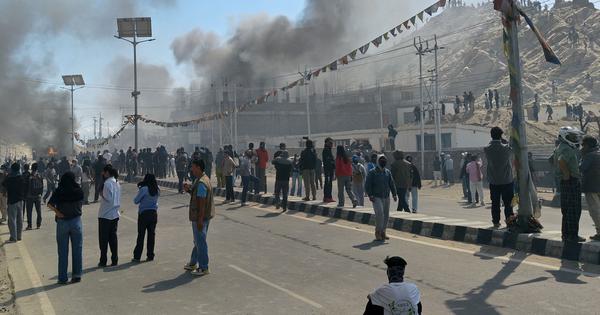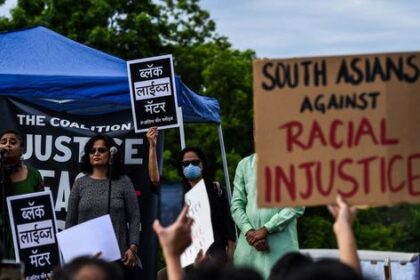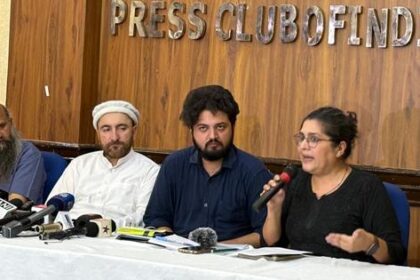Government announces inquiry following protests for Ladakh’s statehood and constitutional safeguards.
The Union government has announced a judicial inquiry into the deaths of four individuals resulting from police firing during protests in Leh on September 24. This decision was confirmed in a press release issued by the Ministry of Home Affairs on Friday. The inquiry will be led by former Supreme Court judge, Justice BS Chauhan.
The violence erupted during demonstrations that called for statehood for Ladakh and sought its inclusion in the Sixth Schedule of the Constitution. Protesters clashed with police, throwing stones and setting fire to the Bharatiya Janata Party office as well as a police vehicle. In the aftermath, two days later, activist Sonam Wangchuk was arrested under the National Security Act. The government attributed the unrest to Wangchuk’s alleged provocative statements.
On October 5, through his lawyer, Wangchuk indicated his willingness to remain incarcerated until a judicial probe was initiated regarding the violence. The protests and subsequent police actions had prompted a climate of heightened security and restrictions, which lasted nearly three weeks. However, the Ladakh administration lifted the ban on gatherings of more than four individuals on Wednesday, as reported by The Hindu.
The Union home ministry’s recent statement underscored the government’s openness to dialogue, asserting that it has always been willing to engage in discussions. It expressed a commitment to continue conversations with the Apex Body Leh and Kargil Democratic Alliance through platforms like the High Powered Committee on Ladakh. These coalitions have been instrumental in advocating for constitutional protections for the region.
Following Wangchuk’s detention, both the Apex Body Leh and the Kargil Democratic Alliance withdrew from negotiations with the government, emphasizing that discussions cannot proceed under duress. Their stance reflects the broader concerns of civil society groups in Ladakh, who have been vocal about the need for constitutional safeguards. These groups argue that the lack of a legislative assembly in Ladakh has fostered growing insecurities regarding land, resources, and livelihoods. There are also fears that the region’s cultural identity and delicate ecosystem may be threatened.
The backdrop to these events includes significant changes made by the Bharatiya Janata Party-led Union government on August 5, 2019, when it abrogated the special status of Jammu and Kashmir under Article 370 of the Constitution. This move bifurcated the state into the Union Territories of Jammu and Kashmir, and Ladakh, raising concerns among residents about their rights and protections. As a result, civil society groups are advocating for Ladakh’s inclusion in the Sixth Schedule of the Constitution, which would facilitate the establishment of autonomous development councils responsible for governing key areas such as land management, public health, and agriculture.








